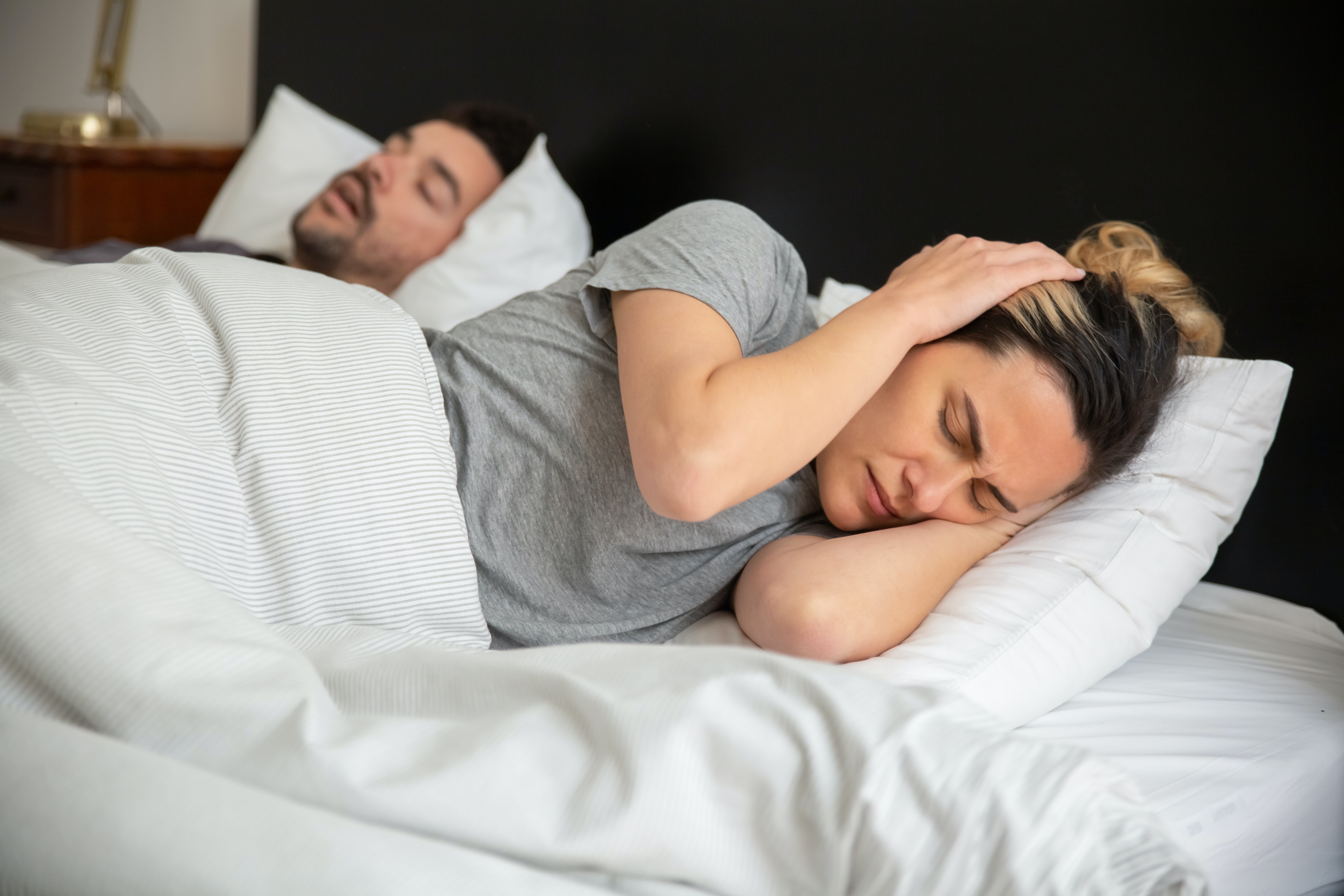Sleep apnea is a severe sleep disorder characterized by repeated interruptions in breathing during sleep, leading to reduced oxygen levels and fragmented sleep. These interruptions, known as apneas, can last from a few seconds to a minute and occur multiple times per hour. There are three main types of sleep apnea: obstructive sleep apnea (OSA), where the airway becomes physically blocked; central sleep apnea (CSA), where the brain fails to send proper signals to the muscles that control breathing; and complex sleep apnea syndrome (CompSAS), a combination of both OSA and CSA. Common symptoms include loud snoring, daytime sleepiness, difficulty concentrating, and morning headaches. If left untreated, sleep apnea can contribute to serious health issues such as hypertension, heart disease, stroke, diabetes, and impaired cognitive function.
The Link Between Sleep Apnea and Snoring in Summerland Key, FL
Snoring, often regarded as a mere nocturnal annoyance, serves as a prominent indication of a more serious underlying sleep disorder: obstructive sleep apnea (OSA). In OSA, the soft tissues at the back of the throat collapse during sleep, obstructing the airway and impeding airflow. This obstruction triggers vibrations in the throat tissues, resulting in the characteristic sound of snoring. However, snoring in OSA can progress to periods of complete airway blockage, leading to breathing interruptions and oxygen desaturation. Thus, while snoring may initially appear benign, it can serve as a significant marker of sleep-disordered breathing, warranting thorough evaluation and appropriate treatment to mitigate potential health risks associated with untreated sleep apnea.
Identifying the link between snoring and sleep apnea is critical for timely intervention and managing the condition. Individuals who experience loud or persistent snoring, symptoms such as daytime fatigue, morning headaches, or gasping for air during sleep should seek evaluation by a healthcare professional. Through proper diagnosis and treatment, including lifestyle modifications, continuous positive airway pressure (CPAP) therapy, or oral appliance therapy, individuals with sleep apnea can achieve improved sleep quality, enhanced daytime functioning, and reduced risk of associated health complications.
Symptoms of Sleep Apnea in Summerland Key, FL
- Excessive daytime sleepiness
- Loud snoring
- Episodes of breathing cessation during sleep, often observed by a bed partner
- Gasping or choking sensations during sleep
- Morning headaches
- Dry mouth or sore throat upon waking
- Difficulty concentrating or remembering
- Irritability, mood swings, or depression
- Restless sleep, frequent awakenings, or insomnia
- Waking up with a feeling of breathlessness or chest pain
Causes of Sleep Apnea
Sleep apnea, a common sleep disorder characterized by interrupted breathing during sleep, has various causes depending on the type. Obstructive sleep apnea (OSA) occurs when the muscles in the throat relax excessively during sleep, causing the airway to become blocked. Factors such as obesity, anatomical abnormalities (like a narrow airway or enlarged tonsils), age, gender (men are more prone), family history, alcohol or sedative use, smoking, and nasal congestion contribute to OSA. Central sleep apnea (CSA), on the other hand, stems from problems in the brain's respiratory control centers. Medical conditions like heart failure, stroke, or neurological disorders, as well as medications affecting breathing, can lead to CSA. Recognizing and addressing these factors is crucial in managing sleep apnea and improving sleep quality and health. Early diagnosis and treatment can help alleviate symptoms and reduce the risk of associated health complications. Call us to learn more.
Treatment Options for Sleep Apnea in Summerland Key, FL
Continuous Positive Airway Pressure (CPAP) Therapy
CPAP therapy is the most common and effective treatment for moderate to severe obstructive sleep apnea (OSA). It involves wearing a mask connected to a machine that delivers continuous air pressure, keeping the airway open during sleep.
Bi-Level Positive Airway Pressure (BiPAP) Therapy
BiPAP therapy delivers two levels of air pressure – a higher pressure when you inhale and a lower pressure when you exhale. This can be more comfortable for some patients, especially those with certain medical conditions or who have difficulty tolerating CPAP.
Oral Appliance Therapy
Custom-made oral appliances, similar to mouthguards, are designed to reposition the lower jaw and tongue to keep the airway open during sleep. Oral appliances are often recommended for patients with mild to moderate obstructive sleep apnea or those who cannot tolerate CPAP.
Surgery
Surgical options may be considered for patients with severe sleep apnea or specific anatomical abnormalities that contribute to airway obstruction. Surgical procedures may include uvulopalatopharyngoplasty (UPPP), genioglossus advancement (GA), maxillomandibular advancement (MMA), or hypoglossal nerve stimulation (Inspire therapy).
Positional Therapy
Sleep apnea symptoms are more pronounced for some patients when sleeping on their back (supine position). Positional therapy involves devices or techniques to encourage sleeping in a position that prevents airway obstruction, such as side sleeping.
Weight Loss and Lifestyle Modifications
Losing excess weight, exercising regularly, avoiding alcohol and sedatives, quitting smoking, and practicing good sleep hygiene can all help reduce sleep apnea symptoms and improve overall health.
Sleep apnea is a common and severe condition that can significantly impact health and quality of life. If you suspect you or a loved one has sleep apnea, visit Summerland Dental at 24986 Overseas Hwy, Summerland Key, FL 33042, or call (305) 745-1522 to seek professional help. Early diagnosis and treatment can prevent complications and improve quality of life.
Visit Our Office
Summerland Key, FL
24986 Overseas Hwy, Summerland Key, FL 33042
Email: summerlanddental@msn.com
Book NowOffice Hours
- MON - WED8:00 am - 5:00 pm
- THU8:00 am - 4:00 pm
- FRI - SUNClosed





